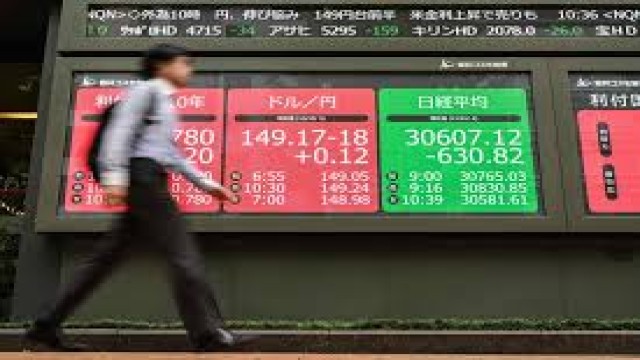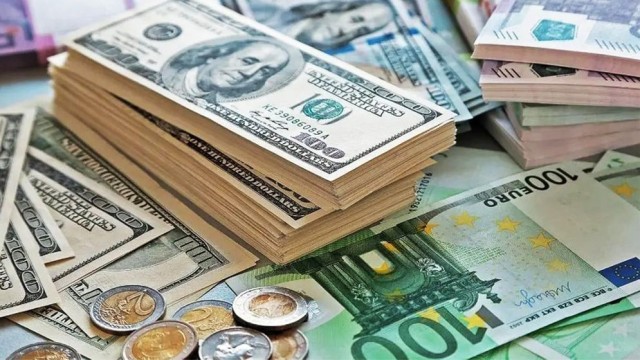Aside from budgetary uncertainty and persistent labor shortages, other factors that have hurt the largest economy in Europe include interest rate hikes by the European Central Bank within the eurozone.
On Thursday, February 15 Once forecast to become the world's biggest economy, Japan slipped below Germany last year to fourth place, official data showed, although India is projected to leapfrog both later this decade.
Despite growing 1.9 percent, Japan's nominal 2023 gross domestic product in dollar terms was $4.2 trillion, government data showed, compared with $4.5 trillion for Germany, according to figures released there last month.
The change in positions primarily reflects the sharp fall in the yen against the dollar, rather than the German economy -- which contracted 0.3 percent in 2023 -- outperforming Japan, economists said.
The Japanese yen dropped by roughly a fifth in 2022 and 2023 versus the US currency, including about seven percent last year.
This was in part because to boost prices the Bank of Japan has maintained negative interest rates, unlike other major central banks which have raised borrowing costs to fight soaring inflation.
"The overtaking... in size in dollar terms owes a lot to the recent collapse in the yen. Japan's real GDP has outperformed Germany's since 2019," said Fitch Ratings economist Brian Coulton.
Germany's heavily export-dependant manufacturers have been hit particularly hard by soaring energy prices in the wake of Russia's invasion of Ukraine.
Aside from budgetary uncertainty and persistent labor shortages, other factors that have hurt the largest economy in Europe include interest rate hikes by the European Central Bank within the eurozone.
Japan is also largely dependent on exports, especially autos, although large companies like Toyota have been able to counteract downturn in important markets like China because to the weakening yen, which makes exports less expensive.
However, because of its declining population and low birth rates, it is experiencing a worse labor shortage than Germany, and experts predict that the gap between the two economies will get wider.
According to statistics released on Thursday, Japan's GDP contracted by an adjusted 0.1 percent in the last three months of 2023 compared to market estimates of a 0.2 percent rise.
The third-quarter growth rate was also changed to -0.8%, indicating that Japan had a technical recession in the second half of 2023. Germany has seen consistent economic development despite its shrinking population, similar to Japan, according to economist Toshihiro Nagahama of the Dai-ichi Life Research Institute.
"This is because, especially since the 2000s, the government authorities in Germany have been actively implementing policies to create an environment that makes it easier for companies to operate in the country," he stated.
However, the disastrous fall of Japan's asset bubble in the early 1990s brought to a number of "lost decades" of deflation and economic stagnation.
Major introspection was sparked in 2010 when China, Japan's Asian adversary, overtook Japan as the number two country. China's GDP is currently around four times larger than Japan's.
Falling behind Germany will nevertheless be a blow to Japan's self-esteem and increase pressure on unpopular Prime Minister Fumio Kishida, even if it is mostly the result of the yen's decline.
More humiliation is to come, as the International Monetary Fund predicts that a rising India would surpass Germany in 2027 and Japan in 2026 in terms of output, but not GDP per capita. Because of their high productivity and difficulty in raising it, Germany and Japan "are shrinking in terms of contribution to global growth in favor of faster-growing ones," according to Alicia Garcia-Herrero, an economist at Natixis.
Of course, steps may be taken by Japan and Germany to lessen this. "The most evident ones are raising the fertility rate or permitting more immigration," she stated to AFP.
Japan "has not made progress in raising its own growth potential," according to a recent editorial in the financial daily The Nikkei in Japan.
"This situation should be taken as a wake-up call to accelerate neglected economic reforms."
End//voice7news.tv































Comment: